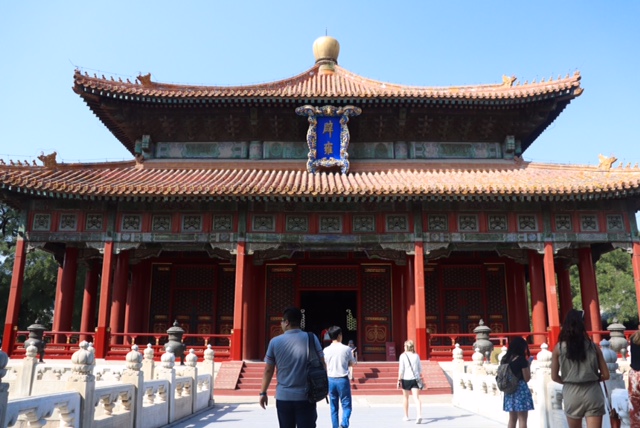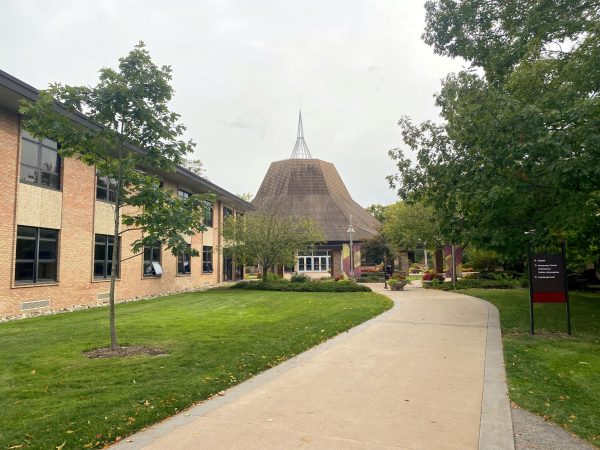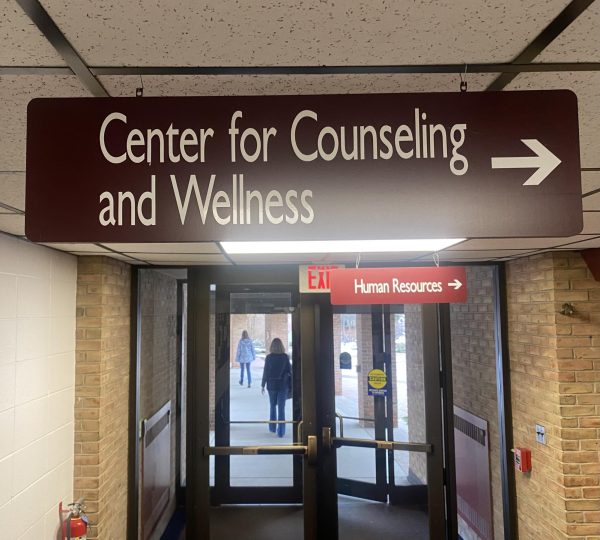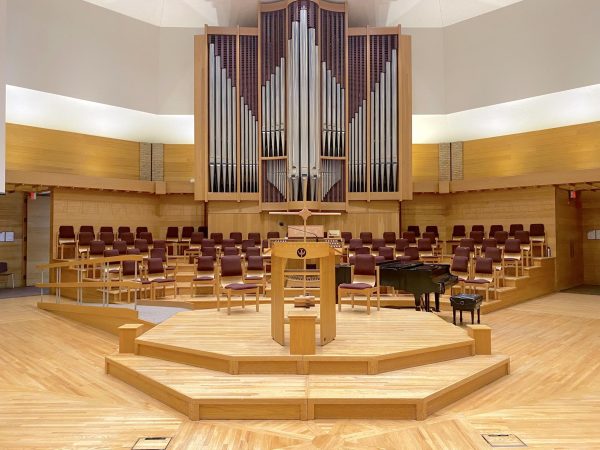Students experience Chinese houses of worship
The 19 Calvin students on this fall’s Beijing semester have seen many of China’s beautiful houses of worship. They have seen many types of them as well, from temples thousands of years old, to churches built six years ago.
Several students are taking a Chinese history class. As part of this class, junior Johanna York said they have learned about Confucianism and Daoism’s “ideals and impacts on society.”
While studying these religions’ impact on Chinese society, students visited three ancient temples, all thousands of years old: the Confucian Temple and Imperial Academy (a training school for ancient scholars), the White Cloud Daoist temple, and the Temple of Heaven.
The class “helped me focus on more than just the architecture, but also the spiritual implications of the structure,” York said, noting how some aspects of the temples “represented the different ideals that [we] learned about.”
Outside the temples, the students have observed hints of other religions. Christine Melching, a sophomore, noted they have seen several Mala bracelets (Buddhist prayer beads).
Anna Malchow, a junior, said that, “a big misconception [about China] is that you can’t talk about Christ, or you can’t go to church.Granted, you can’t openly talk about Christ, but there’s more outlets accessible than what I originally thought.”
The Chinese government requires all churches to register. Registered churches belong to the denomination of the Three-Self Patriotic Movement, regulated by the Communist party. There are therefore three types of Christian churches in China: registered churches, unregistered churches — commonly referred to as “house churches” — and international churches, where churchgoers must show an international passport to enter.
During a trip to Dalian, a southern seaside city, the students toured several Christian churches. One church they visited, a narrow building with several floors, stood in an area that had been farmland six years ago.
Students have also attended services on their own. Like churches in America, the worship style varies from church to church and region to region, though many were more traditional.
Heather Hartman, junior, noted many congregations sing “out of a hymnal. The congregation will recite Bible verses together. There will be a choir wearing robes.”
“All the congregations have been welcoming,” Erica Norman, a senior, said. According to her, at each church she’s been to, there was a point in the service where they would sing newcomers a welcome song and give them informational brochures.
“That’s part of the service because there’s always new people,” Norman said. “There’s always people to welcome.”
Anaiah Zaniah, senior, agreed.
“The church in China is growing, and they are open to a lot of different people,” she said. Their welcoming attitude is “a very distinct thing about the Chinese church,” she said. “You always feel welcome there.”
Sermons at the registered churches don’t tend to be theologically deep, many students noticed.
“Often times the message is a little more surface level,”due to church regulations.
Zaniah said, Melching agreed. “How simply they went over a passage was surprising to me,” she said.
Some students noticed at unregistered churches, this is not always the case. These churches remain unregistered to avoid regulations.
Hartman said in their experience, Christian institutions choose to remain unregistered “so that they could have the freedom to think whatever they wanted and think differently than other people.”
For many students, the international churches felt more familiar.
“The international churches tend to be more similar to what I’m used to in the US,” Zaniah said.
“I felt more at home, more familiar. But it’s also very different,” Sierra Galatas, a junior, said. She said she enjoyed seeing kids from many different countries “being the best of friends, and seeing that side of the church.”
No matter the type of church, the students found community with other Christians. Melching said she has “met some really faithful people, and it’s been very mind blowing to see the work they have done for God and for God’s church.”
The students studying in Beijing this semester have had the opportunity to experience many aspects of Chinese culture, including Chinese street vendors and Chinese hospitality, as well as seeing how China’s beautiful churches and temples fit into its society. As the Calvin students have witnessed, the individual worshiper, no matter their religion, has access to houses of worship.










Robert • Feb 3, 2021 at 7:49 am
I’m a Artist in Drawing and Painting . Im Going To Paint That On The Walls.